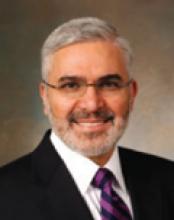The slaying of 32 Virginia Tech University students and faculty by a mentally ill student sparked a national dialogue about mental illness on college campuses. The April 16 rampage—in which the shooter also killed himself—raises many questions about mental health care and the stigma of psychiatric illness:
- Why did TV commentators assume the crime was caused by “evil” and “psychopathy,” instead of a medical illness in a young man with many psychiatric manifestations?
- Why do most people assume that a psychotic individual driven by delusions is too “incompetent” or “confused” to plan and carry out a complex series of deadly assaults?
- Why did the mentally ill student receive no follow-up care before the crimes, even though he had received psychiatric treatment?
- Do medical record requirements in the Health Insurance Portability and Accountability Act (HIPAA) protect individual privacy at the expense of public safety if a patient is seriously mentally ill?
- If the university administration had known about the student’s psychiatric disorder, would he have received better treatment and supervision? Or would he have been stigmatized or expelled, whether or not he responded well to medications and counseling?
- How can roommates or teachers receive adequate information to help a mentally ill student or monitor for treatment adherence when HIPAA rules prevent even families from knowing details of mentally ill adults’ diagnosis or treatment?
- Can laws prohibiting gun sales to persons with a history of serious mental illness be made foolproof, or will guns remain accessible from underground sources?
- Because the home-to-college transition can be very stressful, should colleges require freshman courses on how to recognize distress and seek help?
- Given that schizophrenia, bipolar mania, and psychotic depression often emerge between ages 18 and 25, why have colleges and universities not adopted early screening and intervention?
- Are mentally ill persons more dangerous than the general population, or is that perception based on highly dramatized media reports of isolated incidents?
- When will the public understand that patients with serious mental illness who adhere to treatment often have positive outcomes?
- Why are alcohol and substance abuse—which cause morbidity and death among college students—not “feared” as much as mental illness?
- When will health insurance cover brain diseases that manifest as thought disorders or behavioral aberrations, such as schizophrenia or obsessive-compulsive disorder, in parity with brain diseases that manifest as muscle paralysis, such as stroke or multiple sclerosis?
- Given that >25% of the U.S. population has a diagnosable and treatable mental disorder, why is our mental health system so fragmented, so inadequate, and so underfunded? And why is there no public outcry to fix it?
Virginia Tech’s tragedy has thrust these questions and many more into the public consciousness. To address them, the medical establishment, public health officials, teachers, education administrators, and advocacy groups have a lot of work to do, and regrettably—given past patterns—more bloodshed may occur before answers emerge.
Finally, as a parent and husband, I have one last question: how can we console the bereaved families of the Virginia Tech students and faculty who suddenly lost a son or daughter, husband or wife in the prime of life? For them, improvements in mental health care on our college campuses will come too late.
See related article: Does this patient have prodromal psychosis?


